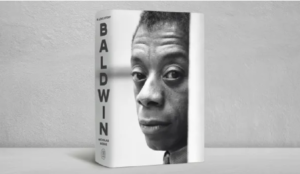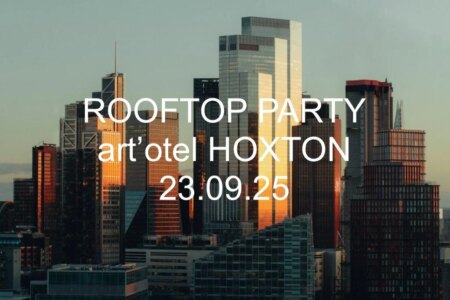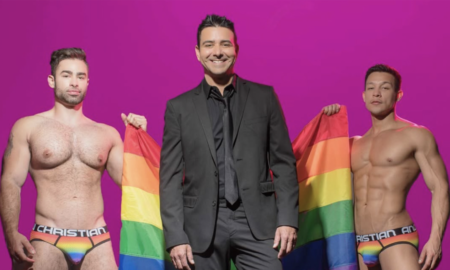Drag queens have historically been pivotal figures within the LGBTQ+ community, serving as icons of joy, creativity, and protest. However, the contemporary landscape has seen a rise in hostility towards events such as Drag Story Time, which aims to introduce children to literature through the art of drag performance. This initiative not only promotes literacy but also fosters inclusivity among young audiences. Yet, as Jacquie Grant of YOUR EX Magazine highlights, the backlash against these events raises significant questions regarding the safety and principle of inclusiveness in the face of opposition.
Drag Story Time has emerged as a modern initiative inviting drag artists to read to children in public libraries, ultimately intending to create a joyous and welcoming environment for children of all backgrounds. Despite its well-meaning foundation, the events have increasingly become focal points for protest, often driven by religious groups and far-right activists who view them as a threat to traditional values. The events have attracted both enthusiastic supporters and vehement opponents, with instances of protests escalating to confrontations.
Grant shares that conversations among drag performers often revolve around the implications of ceasing such initiatives. A drag queen confided to a friend that “If we stop, then they win,” encapsulating the sentiment that backing down from these events may embolden those who oppose queer expression. However, the rising hostility has led some to question whether the potential risks to both the performers and young participants outweigh the inherent benefits of such events. Grant suggests that, while visibility has significantly increased for queer culture—thanks in part to platforms like social media—this heightened presence does not negate the complexities and dangers associated with public performances, especially those aimed at children.
The scrutiny surrounding Drag Story Time is not unfounded. Grant reflects on the balance between advocating for queer representation and the potential backlash that could ensue. She posits that today’s youth have unprecedented access to diverse representations of queerness, as the abundance of drag content prevalent on social media offers a plethora of role models without needing to resort to public events that may attract negativity.
Additionally, the portrayal of drag within children’s theatre is not a new concept; many grew up watching men in drag entertain during pantomimes without the controversy faced by newer formats like Drag Story Time. Nonetheless, this particular iteration seems to have elicited aggressive reactions from certain factions claiming, “They’re coming for the children,” a narrative that continues to resonate with individuals already predisposed to fearful beliefs.
Through her analysis, Grant encourages a strategic reflection on the broader implications of continuing to host Drag Story Time events given the current climate. She argues that it is not about retreating into silence but rather about discerning which battles yield the most meaningful progress. With significant milestones achieved in LGBTQ+ rights, the predicament arises as to whether it is prudent to risk those advancements for the sake of defending a singular format of expression.
Source: Noah Wire Services
- https://lgbtqsd.news/drag-queens-are-a-great-part-of-lgbtq-history/ – This article highlights the historical significance of drag queens in the LGBTQ+ community, including their role in activism and civil rights movements. It underscores their crucial contributions to community cohesion and representation.
- https://www.glad.org/international-drag-day-drag-and-the-fight-for-lgbtq-rights/ – This piece celebrates the history and cultural impact of drag performers, emphasizing their role in the fight for LGBTQ+ rights and their influence on contemporary culture.
- https://myresourcecenter.org/the-importance-of-drag-queens/ – This resource emphasizes the importance of drag queens as symbols of self-expression and empowerment, highlighting their role in challenging societal norms and promoting inclusivity.
- https://www.pbs.org/newshour/world/drag-performers-stand-up-to-protests-in-u-s-canada – This article discusses the increasing protests against drag performances, including Drag Story Time, highlighting the tension between advocacy for LGBTQ+ visibility and opposition from conservative groups.
Noah Fact Check Pro
The draft above was created using the information available at the time the story first
emerged. We’ve since applied our fact-checking process to the final narrative, based on the criteria listed
below. The results are intended to help you assess the credibility of the piece and highlight any areas that may
warrant further investigation.
Freshness check
Score:
8
Notes:
The narrative references current events, suggesting recent activity. However, no specific recent dates or events are mentioned, which could indicate it may not be based on very recent occurrences. The mention of ongoing discussions around Drag Story Time suggests the content is not overly outdated.
Quotes check
Score:
9
Notes:
The quote ‘If we stop, then they win’ does not appear to be from a well-documented public figure’s statement, and its origin could not be verified online. It seems like an original contribution within this context.
Source reliability
Score:
7
Notes:
The narrative originates from Gay Express, a publication known within the LGBTQ+ community but not widely recognized as a major international news source. Its reliability is moderate, as it focuses on niche topics but lacks mainstream credibility.
Plausability check
Score:
9
Notes:
The narrative aligns with ongoing societal debates about Drag Story Time events, which have indeed faced significant backlash. The discussion around inclusivity and safety is plausible and consistent with contemporary issues.
Overall assessment
Verdict (FAIL, OPEN, PASS): PASS
Confidence (LOW, MEDIUM, HIGH): HIGH
Summary:
The narrative appears to address current societal issues with plausible claims. While the source reliability is moderate, the content’s focus on contemporary debates and its likely original quote contribute to its overall validity.




















